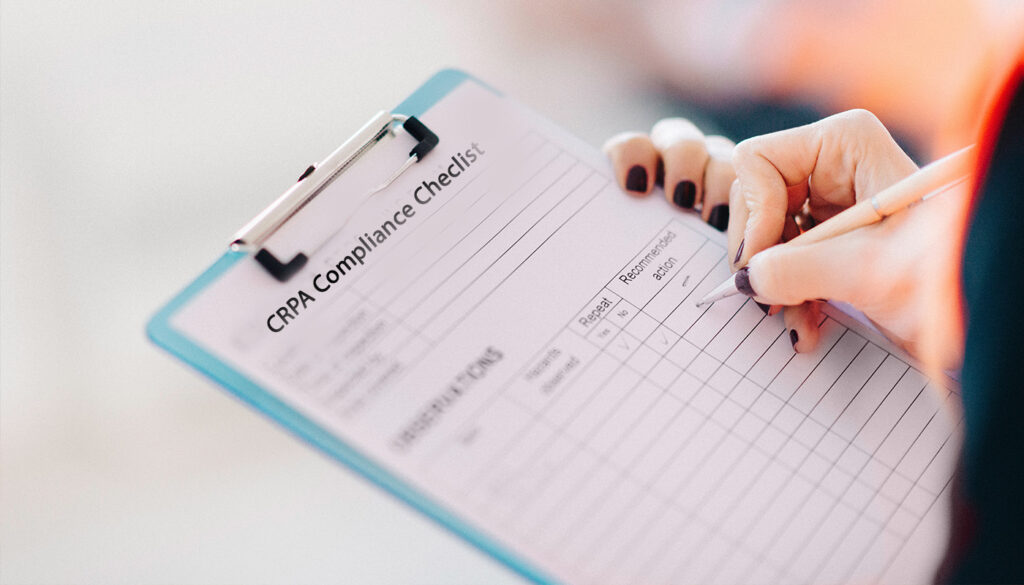Data privacy and protection have become major concerns for businesses in today’s digital world. In 2023, the California Privacy Rights Act (CPRA) will be in effect, bringing new regulations and responsibilities for businesses operating in California.
This checklist will provide you with simple and straightforward steps to ensure CPRA compliance, safeguard your customers’ personal information, and reduce the risks of non-compliance.
Let us explore the key elements of this checklist in this article and set your business up for success in data privacy.
What is the California Privacy Rights Act (CPRA)?
The California Privacy Rights Act (CPRA) is a data protection law in California that strengthens consumer privacy rights. It builds on the California Consumer Privacy Act (CCPA) and imposes stricter rules on businesses that handle personal information.
The CPRA aims to empower individuals by giving them more control over their data. It also requires businesses to be transparent, accountable, and secure in their data practices. By understanding and following the CPRA, businesses can adjust their operations to comply with the law and safeguard their customers’ privacy.
How Does CPRA Impact Business Operations?
The CPRA has a big impact on how businesses operate, especially when it comes to data privacy and protection. It gives consumers new rights, like the ability to correct wrong information about themselves and limit the use of sensitive data.
Businesses now have stricter requirements under the CPRA. They need to have reasonable security measures in place to protect personal information. The CPRA also introduces a new category called “sensitive personal information,” which needs extra protection.
7 Step CPRA checklist for compliance
By following this 7-step CPRA compliance checklist, your business can take proactive steps to meet the requirements of the CPRA, safeguard personal data, and show your dedication to data privacy and security.
Know Your Data
To comply with CPRA, it is important to know the personal data your business collects, processes, and stores. Conduct a thorough audit to identify the types of data you handle, like customer and employee information. Document where the data is stored, who can access it, and how it is used. This understanding will help you identify risks and establish proper protections.
Prepare For New Consumer and Employee Rights Requests
Under the CPRA, individuals have more rights over their personal information. Take the time to understand these new rights, like the ability to fix incorrect data and control the use of sensitive information. Create efficient processes to handle requests from consumers and employees, making sure you can respond within the required time limits. Train your staff on how to handle these requests and set up clear communication channels for easy interaction. By doing so, you can ensure that you respect individuals’ rights and provide them with a smooth experience when managing their personal information.
Identify Your Internal “CPRA Team”
Create a special team in your organization to handle CPRA compliance. This team should consist of people from various departments like legal, IT, HR, and data management. Assign specific tasks to team members, such as monitoring compliance, updating policies, and training employees. By having a dedicated CPRA team, you can ensure that compliance activities are well-coordinated and successfully executed throughout your organization.
Update Policies For “Do Not Share,” Retention, And Sensitive Personal Information
Update your privacy policies to meet CPRA requirements. Include a “Do Not Share” option, giving consumers the choice to opt out of their personal information being sold or shared. Clearly define how long you will keep personal information and when it will be deleted. Be extra careful with sensitive data like financial or health information and put extra measures in place to keep it secure.
Identify Any Gaps in Processes and Address Them
Assess your current data management processes to find any gaps or weaknesses that might prevent CPRA compliance. Perform a gap analysis to pinpoint areas where you may not meet CPRA requirements, such as data protection, responding to breaches, or employee training. Fill these gaps by making process improvements, updating technology, and enhancing training programs as needed.
Implement Your Privacy Program
Create a thorough privacy program that meets the CPRA’s standards. This program should cover policies and procedures for managing and protecting data, as well as responding to incidents. Train your employees on the program so they know how to handle personal information responsibly. Regularly review and update the program to stay compliant with changing regulations and address emerging privacy risks.
Perform Risk Assessments and Annual Cybersecurity Audits
To ensure compliance with the CPRA, it is important to regularly assess the risks associated with how you handle data. Conduct annual cybersecurity audits to identify any vulnerabilities. Take proactive steps to reduce those risks, such as implementing strong cybersecurity measures like encryption and access controls. Provide employees with training on cybersecurity best practices. Keep reviewing and updating your risk assessments and audits to stay ahead of new threats and meet CPRA requirements. By doing so, you can protect data and maintain compliance with the law.
Conclusion
In conclusion, it is vital for businesses to prioritize data privacy and protection as they handle large amounts of consumer data. With the introduction of the California Privacy Rights Act (CPRA), businesses are now required to implement strong compliance measures. By following the ultimate CPRA compliance checklist we have provided for businesses in 2023, you can ensure that your organization meets the necessary requirements and protects your customers’ privacy. By taking a proactive approach to data privacy, your business can establish trust, safeguard sensitive information, and thrive in a world that values privacy. Start your journey towards CPRA compliance today and secure a brighter future for your business and its customers.


